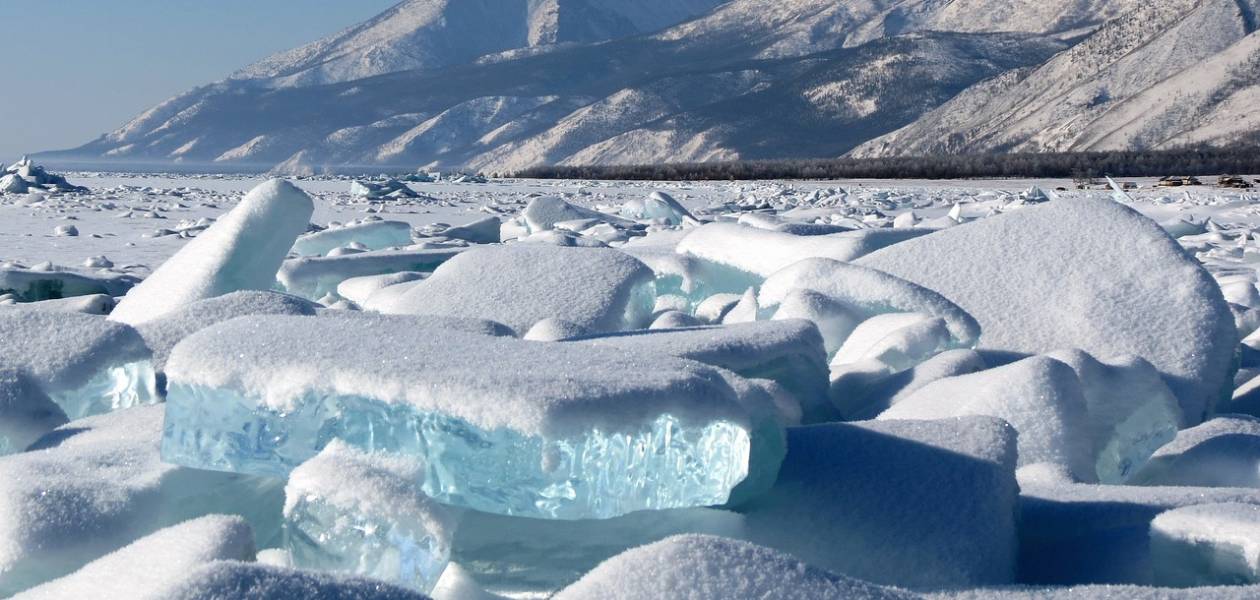
The World Meteorological Organization will elevate the cryosphere to one of its top priorities, given the increasing impacts of diminishing sea ice, melting glaciers, ice sheets, permafrost and snow on sea level rise, water-related hazards and water security, economies and ecosystems.
The World Meteorological Congress, WMO’s top decision-making body, endorsed a new resolution calling for more coordinated observations and predictions, data exchange, research and services. It proposes to ramp up activities, with a proposed increased in funding from the regular budget and extrabudgetary funding.
Delegates from around the world voiced concern that what happens in Polar and high mountain areas affects the whole globe, in particular small island states and densely populated coastal zones.
“The cryosphere issue is a hot topic not just for the Arctic and Antarctic, but it is a global issue,” said WMO Secretary-General Prof. Petteri Taalas.
Sue Barrell (Australia) and Diane Campbell (Canada) who are co-chairs of the WMO’s, Executive Council’s Panel on Polar and High Mountains Observations, Research, and Services, outlined the challenges and the need for urgent action.
- Well over a billion people rely on water from snow and glacier melt, carried downstream by the major river basins of the world. The irreversible changes in the global cryosphere will therefore affect adaptation strategies and access to water resources.
- Arctic permafrost is melting and is a “sleeping giant” of greenhouse gases. Arctic permafrost stores twice as much carbon as in the atmosphere today. Thawing mountains and Arctic permafrost creases increased risk of natural cascading hazards.
- Glaciers, Greenland and Antarctica ice sheet melt accounts for about 50 percent of sea level rise, which is accelerating. This is having growing and cascading impacts on small island developing states and densely populated coastal areas.
- Cryosphere changes in mountain areas are leading to an increased risk of hazards such as rockslides, glacier detachments and floods. For example, Pakistan has surveyed more than 3000 glacial lakes, of which 36 were potentially dangerous and at high risk for outburst. It suffered numerous glacial lake outbursts and flash floods in 2022 – a year which saw extreme and prolonged heat in March and April and devastating floods in September and October.
- There is a need for coordination of activities in Antarctic carried out by Members to meet needs for meteorological data and services and for environmental monitoring and climate research.

The resolution calls for greater investment and mobilization of activities well beyond the WMO community. It sets out the high-level priorities and proposed actions, which are linked to WMO’s Long-Term Goals:
- The urgency of global and regional emerging risks from the changing cryosphere in a changing climate, is understood and reflected in the workplans of WMO bodies and in global frameworks.
- Collaborative and coordinated technical mechanisms are optimized to support advancing service delivery by Members, to address relevant gaps in polar and high mountain regions, at all scales.
- Earth system predictions are enhanced through closing gaps in polar and high mountain observations; improving data sharing; and improved numerical models integrating research on cryospheric processes.
- Partnerships and collaboration with research and external stakeholders advance knowledge sharing and amplify the existing capacity to deliver services, in a regional relevant manner.
- Antarctica: Members’ collaboration in collecting and sharing observations, conducting research, and developing and providing services, is enhanced.
Sea level rise, ice and glaciers are among the climate indicators monitored by WMO and the Intergovernmental Panel on Climate Change. The WMO State of the Global Climate 2022 report highlighted the rapid change.
Reference glaciers (for which we have long-term observations) experienced an average thickness change of over −1.3 metres between October 2021 and October 2022. This loss is much larger than the average of the last decade. The cumulative thickness loss since 1970 amounts to almost 30 m.
The European Alps smashed records for glacier melt due to a combination of little winter snow, an intrusion of Saharan dust in March 2022 and heatwaves between May and early September. In Switzerland, 6% of the glacier ice volume was lost between 2021 and 2022 – and one third between 2001 and 2022.
The Greenland Ice Sheet ended with a negative total mass balance for the 26th year in a row.
Sea ice in Antarctica dropped to 1.92 million km2 on February 25, 2022, the lowest level on record and almost 1 million km2 below the long-term (1991-2020) mean.
Arctic sea ice in September at the end of the summer melt tied for the 11th lowest monthly minimum ice extent in the satellite record.
Global mean sea level reaching a new record high for the satellite altimeter record (1993-2022). The rate of global mean sea level rise has doubled between the first decade of the satellite record (1993-2002, 2.27 mm∙yr-) and the last (2013-2022, 4.62 mm∙yr).

Posted on 2023-05-31 15:30








Comments